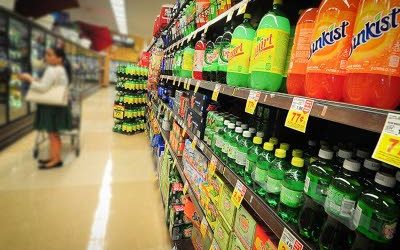BY ANIKA RICHARDS [/quote-left]
THE Ministry of Health is exploring the possibility of a special consumption tax on sugar-sweetened beverages in order to tackle what Health Minister Dr Christopher Tufton described as the health sector’s and economy’s “biggest threat” — non-communicable diseases (NCDs).
Speaking with the Jamaica Observer last Monday, Dr Tufton admitted that such a move would be subject to Cabinet approval, but shared that it is an approach that must be considered.
“It seems to me that, given where we are headed, part of the new norm has to be to look to providing some guidance around those food groups, which is why the Food Industry Task Force has been appointed to look at that particular challenge, labelling issues — what is allowed (and) what is not,” Dr Tufton said.
Jamaica’s Food Industry Task Force, to be chaired by Dr Fitzroy Henry, is being operationalised, according to Dr Tufton, towards reducing salt and sugar content in processed food and outlining caloric values on labels so that the public can make educated choices.
Dr Tufton’s admission came on the heels of a call from Dr Alafia Samuels, director, Chronic Disease Research Centre at The University of the West Indies, for a tax — similar to that on tobacco products — to be imposed on sugar-sweetened beverages.
“We have started in the region; Barbados and Dominica have done it. We would like every country in Caricom (Caribbean Community) to impose a tax on sugar-sweetened beverages,” Dr Samuels said at a recent meeting at the Courtyard Marriott in New Kingston, to engage the society in accelerating the NCD response within the region. “You do not need to drink sugar-sweetened beverages; you can drink water.”
“One of these cans of soda sometimes has eight, 10, 12 teaspoons of sugar. We don’t need that and it is causing obesity; even independent of obesity, it is causing diabetes,” Dr Samuels said.
Although the move was met with much opposition in Barbados, the Government last year announced that a 10 per cent tax would be applied to all carbonated soft drinks, sports drinks, sweetened fruit juices, and juice drinks in an effort to tackle obesity and change consumer behaviours. Later that year, Dominica also announced a tax increase on unhealthy items, such as cigars, cigarettes, alcoholic beverages, as well as food and drinks with high sugar content.
“In terms of changing consumption, price trumps health education every time, so we have to get the pricing set right to help people to do the right thing,” she told representatives from civil society, faith-based organisations, private sector, and the media who attended the meeting.
In his Sectoral Debate presentation on June 29, Dr Tufton said the latest Health and Lifestyle Survey indicated that three quarters or more of Jamaicans aged 15 to 74 consumed one or more bottles of a sweetened beverage per day, with rural dwellers consuming more than urban dwellers.
A non-communicable disease is a medical condition that is non-infectious or non-transmissible, such as diabetes, high blood pressure or hypertension, cancers, and heart disease.
Dr Tufton also said NCDs and their risk factors, singling out obesity, continue to weigh heavily on Jamaica’s health system.
“Take obesity, for example. Obesity is the most common risk factor in Jamaica, with more than 60 per cent of Jamaicans, aged 35 to 54, being either obese or overweight,” he said.
“We are paying dearly for these challenges,” he continued.
The health minister cited a 2011 study by the World Bank entitled, ‘Public Policy and the Challenge of Chronic Non-Communicable Diseases’, which estimated that the direct and indirect cost for Jamaica to treat diabetes and hypertension alone — two of the major concerns related to NCDs — amounts to US$452 million per year. He said, too, that more generally, it’s estimated that an individual suffering from any of the NCDs spends approximately one-third of household per capita expenditure on health care services and the purchase of pharmaceutical drugs.
Dr Tufton also referred to a 2016 study, commissioned by the Pan American Health Organization and conducted by the Harvard School of Public Health, which indicates that NCDs and mental health will cost Jamaica $26.3 billion in lost output over the 15-year period 2015 to 2030.
Meanwhile, in expressing concern about NCDs in the region, Dr Samuels, who is the principal investigator for the team evaluating the Caricom 2007 Port of Spain Declaration on NCDs, which was a landmark response to the epidemic, said in Jamaica and the Caribbean young people are the ones dying from these diseases.
“Twice as many younger people are dying from chronic disease in the Caribbean when compared to North America, and that really is the issue and the problem,” she said.
She said Caricom heads of government, realising the situation, came together in 2007 and issued the Declaration of Port of Spain. Her role now is to evaluate the successes and challenges in attaining the declaration’s commitments.
“We had this evaluation and it is going from 2014 to 2017. We have actually finished collecting the data and we have the evidence brief, and this part of the evaluation, this last year, is to do just what we are doing today, which is to talk to society about what we have found and what we can all do together to take this thing forward,” she said.
She insisted that legislation, regulation and taxation are the things that will make a difference.
“Yes, we need to do health education, but we need to create an environment where it is easy for people to do the right thing,” Dr Samuels said.














